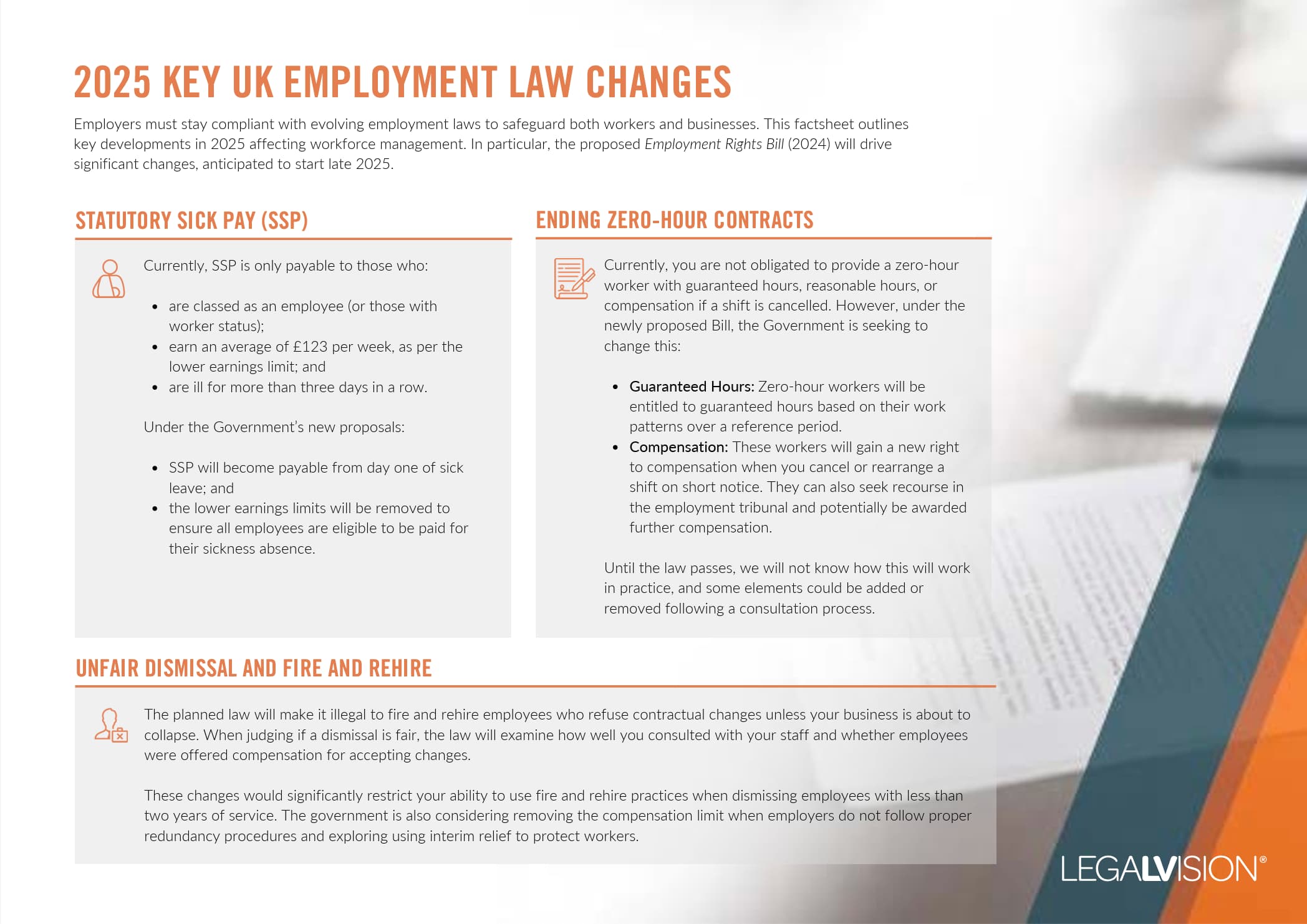In Short
- Young workers under 18 have specific legal protections for working hours, rest breaks, and night shifts.
- Employers must follow regulations, including obtaining permits for those under 16.
- Non-discrimination laws apply, and young workers must receive the national minimum wage.
Tips for Businesses
Ensure your policies comply with legal requirements for hiring young workers, including working hours, rest breaks, and pay. If hiring someone under 16, secure the necessary permit from the local council. Treat young workers fairly and without age-related discrimination, and maintain accurate records of their employment details.
Welcoming young talent into the workforce can be immensely rewarding for you as an employer, providing opportunities for growth and skill development. However, it is crucial to approach this process with care and compliance, as regulations governing the employment of young people in the UK differ from those over 18. This article will explore the key considerations when hiring young people at your business.
Who is Classed as a ‘Young Person’?
Deriving from the Working Time Regulations 1998, young people are legally classed as those who are 15, 16, or 17. In order for a young person to work full time, there is an additional requirement that the individual has reached the school leaving age but is under the age of 18. This is calculated as being the last Friday in June of the academic year in which they turn 16; however, it will be important to check this based on your location.
This will apply to England and Wales, whereas the regime in Scotland and Northern Ireland differs according to their academic year.
Furthermore, if you are an employer hiring in England, you must consider a new legal requirement. People under the age of 18 are now legally required to remain in some form of education until they turn 18, which can be in the form of:
- full-time education or training such as college or other educational courses;
- apprenticeships; or
- working or volunteering for 20 hours or more per week while in part-time education or training.

This factsheet outlines key developments in 2025 affecting workforce management.
Legal Entitlements of Young People
The Working Time Regulations 1998 set the legal working time limits for young workers. These regulations govern various aspects of their employment, such as:
- working hours;
- rest breaks; and
- night work restrictions.
Working Hours and Rest Breaks
By law, young workers must not work more than 8 hours per day, or more than 40 hours per week. This means that they are required to have daily uninterrupted rest periods between the end of one shift and the start of another of 12 hours, and a weekly rest period of 48 hours per week.
Additionally, young people will be entitled to a minimum of a 30-minute break if their working day exceeds 4.5 hours.
Night Work Restrictions
Young workers are prohibited from working during the ‘restricted period,’ which is typically between:
- 10 pm and 6 am; or
- 11 pm and 7 am, if their contract allows for work after 10 pm.
Generally, night working should be avoided where possible. Only if there are no adult workers available to do the work and you can ensure that the work would not impact the young person’s education or training can you allow a young person to work between restricted periods.
There are exceptions for certain types of work, such as:
- advertising;
- agriculture;
- catering; and
- hospitality.
However, specific conditions must be met, including supervision by an adult and an assurance that the night shifts will not impact the young person’s education.
Continue reading this article below the formCall 0808 196 8584 for urgent assistance.
Otherwise, complete this form, and we will contact you within one business day.
Employment Rights and Obligations
The rights of young staff members and your legal obligations towards them may vary depending on whether the individual is classified as an employee or a worker. It is essential that you understand these distinctions and ensure compliance with relevant regulations.
It is important to note that you must pay young people the national minimum wage, which is found on the government’s website and updated annually in April.
Record Keeping
You are legally required to maintain records of young workers’:
- hours;
- night work (if applicable); and
- any health assessments offered before and during their employment.
These records must be kept for at least two years from the date of their creation.
Non-Discrimination
The Equality Act 2010 prohibits discrimination based on age, which is a protected characteristic under the law. You must ensure that you treat young workers fairly and without prejudice due to their age or perceived age.
By understanding and adhering to these considerations, you can create a safe, nurturing and compliant work environment for young workers while benefiting from their talents and enthusiasm.
Key Takeaways
Hiring young workers under 18 can offer valuable benefits to your business, but it requires careful compliance with legal obligations. Ensure you follow regulations on working hours, rest breaks, and night work restrictions, and maintain accurate records. Additionally, young workers must be paid the national minimum wage, and you must not discriminate based on age. Adhering to these guidelines can create a safe and supportive work environment for young employees.
If you are hiring young people, our experienced employment lawyers can assist as part of our LegalVision membership. For a low monthly fee, you will have unlimited access to lawyers to answer your questions and draft and review your documents. Call us today on 0808 196 8584 or visit our membership page.
Frequently Asked Questions
Young workers under 18 must not work more than 8 hours per day or 40 hours per week. They are also entitled to a 30-minute break if their shift exceeds 4.5 hours and must have a rest period of at least 12 hours between shifts.
Yes, if you plan to hire someone under the school-leaving age of 16, you must obtain a work permit from the local council’s education department. This ensures compliance with child employment laws and local regulations.
We appreciate your feedback – your submission has been successfully received.












